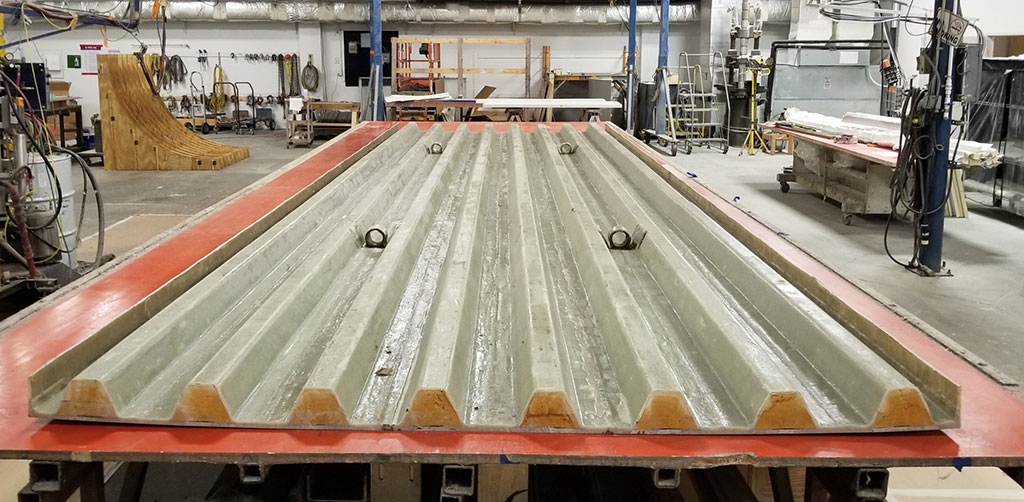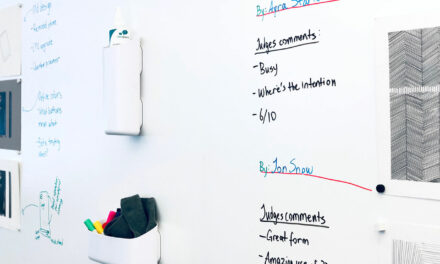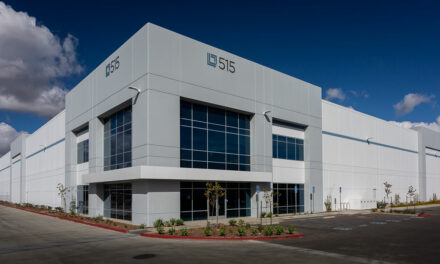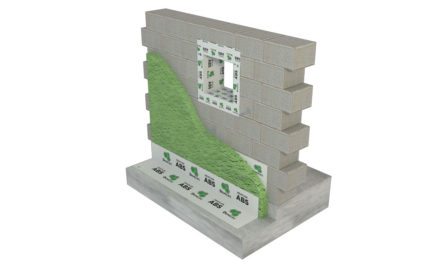A damaged, decades-old concrete bridge just off a narrow, curvy rural road in north central Tennessee’s Morgan County will soon come down, and a low-cost, low-maintenance, technologically advanced composites bridge deck system with a 100-year lifespan will take its place.
It is all part of a privately funded infrastructure project aimed at demonstrating fiber-reinforced polymer composite materials, or FRPs, as a fast and easy sustainable solution for improving the thousands of structurally deficient rural bridges that plague financially strapped counties across the U.S.
Located one-hour northwest of Knoxville on Elizabeth Church Road, the two-lane bridge has needed repair for many years, Morgan County Highway Superintendent Joe Henry Miller said. Miller and county officials are partnering with private industry and researchers at the University of Tennessee (UT) and the Institute for Advanced Composites Manufacturing Innovation, or IACMI—The Composites Institute®, in Knoxville to create an affordable bridge that can be installed quickly and will safely meet transportation needs in the rural community.
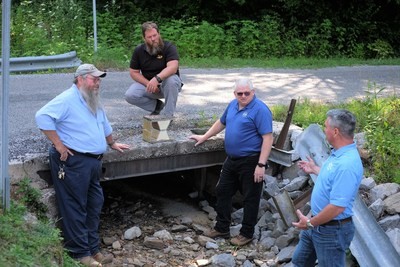
Pictured above: IACMI Technology Impact Manager John Unser, second from right, is coordinating a public-private collaboration to install a fiber reinforced polymer composite bridge deck in a rural Tennessee community. From left, are Morgan County (TN) Highway Superintendent Joe Henry Miller, McKinney Excavating (TN) Owner Brian McKinney, and Composite Applications Group CEO Jeff McCay.
“For more than 20 years, FRP composites have been used in bridge applications, and they’ve met and exceeded all performance and safety standards set by the Association of State Highway and Transportation Officials,” said John Unser, IACMI technology impact manager. “But when it comes to composite bridge decking, many transportation departments across the country are unfamiliar with the technology.
“As part of our objectives for sustainability and strategic planning, our goal in this demonstration is to develop a comprehensive case study for comparing the total costs of a typical concrete bridge and one using an FRP bridge deck. We will share the case study framework and results with federal, state and local officials, transportation departments and the civil engineering community so FRP composites will be more of a ‘known’ to them,” Unser said.
The next-generation composites bridge deck design has already been tested in Oklahoma and Missouri, Unser said, and those trials have provided a greater understanding of the bridge’s strength properties and confidence in the long-lasting, low-maintenance design.
Fiber-reinforced polymer composites products produced in the U.S. offer durable, sustainable and cost-effective solutions not only in bridges but in a variety of infrastructure and transportation applications as well, including highways, dams, railroads, semi-trailers, aircraft, waterfront structures, utility poles and buildings.
The Morgan County demonstration bridge has caught the attention of the Tennessee Department of Transportation (TDOT), a supporter of accelerated and innovative bridge design and construction techniques.
“The use of fiber reinforced polymer bridge deck units, as being coordinated by the University of Tennessee and IACMI, has the potential to greatly enhance the performance, durability and service life of our low volume rural bridge network across the state,” said Ted Kniazewycz, TDOT structures division director.
Fiber Optic Sensors to Monitor Bridge System While in Use
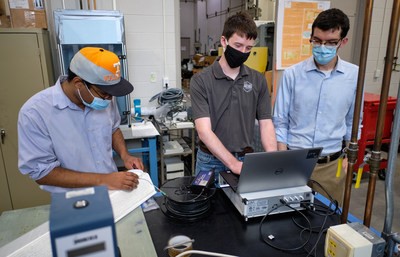
From left, Dr. Dayakar Penumadu’ s research group member Dr. Stephen Young, and graduate students Andrew Patchen and Joey Michaud are part of the University of Tennessee’s team working to equip the fiber reinforced polymer bridge deck with high-density fiber optic and fiber Bragg grating sensors to monitor long-term durability.
A team of researchers at UT’s Fibers and Composites Manufacturing Facility is working with IACMI and the bridge project team to equip the new FRP bridge deck with high-density fiber optic sensors and a state-of-the-art wireless sensor module system to monitor the composite bridge deck system while in service.
Luna Innovations Incorporated out of Roanoke, Virginia, developed the high-density fiber optic sensors and fiber Bragg grating sensors. A single 10-meter sensor can provide strain from mechanical loading or thermal/hygroscopic loading from thousands of locations simultaneously with exceptional precision. These are easy to install while composite decks are manufactured and become part of the structural component. In addition, wireless technology developed at UT will be utilized for monitoring the response of the bridge system and traffic counts remotely via cloud computing.
“Lack of durability data is one of the major barriers of the adoption of novel and advance materials including carbon, basalt, or glass fiber reinforced polymeric composites in civil infrastructure,” said Dayakar Penumadu, the Fred N. Peebles Professor in the Tickle College of Engineering and Characterization Fellow for Materials and Processing group for IACMI.
Penumadu added, “this is a major obstacle for integrating new materials and structures quickly and thus require successful demonstration as being done through this IACMI project. Bridge decks are the most damage prone elements and we are integrating smart sensors distributed throughout the composite bridge deck that will provide us valuable performance data with time for years to come.”
Public-Private Collaboration
Jeff McCay, CEO of Chattanooga, Tennessee–based Composite Applications Group, or CAG, has been instrumental in getting the rural bridge project off the ground.
“We have pulled together a unique team of public-private partners to address a specific need that exists in many rural communities in Tennessee and across the country: structurally deficient or obsolete bridges,” he said.
When McCay learned Morgan County officials were looking for a highly durable, low-maintenance solution to replace the bridge, he saw an opportunity to incorporate composite bridge technology from Structural Composites and began discussions with IACMI and UT, along with in-state excavating contractor McKinney Excavating Inc. of Athens, Tn.
McKinney Excavating owner Brian McKinney welcomed the chance to partner in the project.
“We see this as a great opportunity to showcase FRP composite bridges as a great product and be at the forefront of cutting-edge technology and its implementation,” McKinney said.
The four private corporations — Structural Composites Inc. in Melbourne, Fla., CAG, Luna Innovations and McKinney Excavating have committed to designing, fabricating, shipping, installing and monitoring the 16-by-25-foot bridge deck, all at no cost to Morgan County. Structural Composites designed the bridge and fabricated the deck at its Florida facility with support from the federal Paycheck Protection Program (PPP), under the CARES Act. In addition, Henry Pate with Neel-Schaffer in Nashville is providing structural engineering support.
Composite Bridges
Scott Lewit, Structural Composites president, said the new cost-effective, high-performance bridge will both demonstrate the general advantages of composite bridges and showcase the benefits of building composite bridges in rural communities across the U.S.
“More than 150,000 bridges in the U.S., many located in rural parts of the country, are in need of replacement,” Lewit said. “Composites bridge deck technology can provide rural communities with a low-cost, lightweight bridge structure that requires less equipment, making a shorter period for on-site preparation and a vastly shorter period for on-site installation.”
Lewit said that while his company is producing the bridge deck, or surface, at its Florida plant, his long-term vision is to deploy the “easy-to-build technology across the U.S. industrial base of composite fabricators.
“It moves infrastructure construction from the field into the factory, allowing for prefabrication in a controlled environment and very rapid field installation that minimizes installation traffic impacts,” he said.
A shorter installation time is especially critical in single-access locations, which are more common in rural areas than urban. And for rural counties struggling with tight budgets, faster completion can mean significant savings in time and money.
In addition to Structural Composites and its key partners, several other private companies are contributing expertise and materials such as adhesives, epoxies, coatings and resins, preforms and reinforcements to the project. They include Interplastic Corporation, Engineered Bonding Solutions LLC, AcraLock Engineered Solutions, West System, Superior Fiberglass, METYX Composites and Compsys, Inc.
The installation of the composites bridge deck is expected to be completed late 2020 or in early 2021.
About IACMI – The Composites Institute
The Institute for Advanced Composites Manufacturing Innovation (IACMI), managed by the Collaborative Composite Solutions Corporation (CCS), is a partnership of industry, universities, national laboratories, and federal, state and local governments working together to benefit the nation’s energy and economic security by sharing existing resources and co-investing to accelerate innovative research and development in the advanced composites field. CCS is a not-for-profit organization established by The University of Tennessee Research Foundation. The national Manufacturing USA institute is supported by a $70 million commitment from the U.S. Department of Energy’s Advanced Manufacturing Office, and over $180 million committed from IACMI’s partners. Learn more at IACMI.org.

